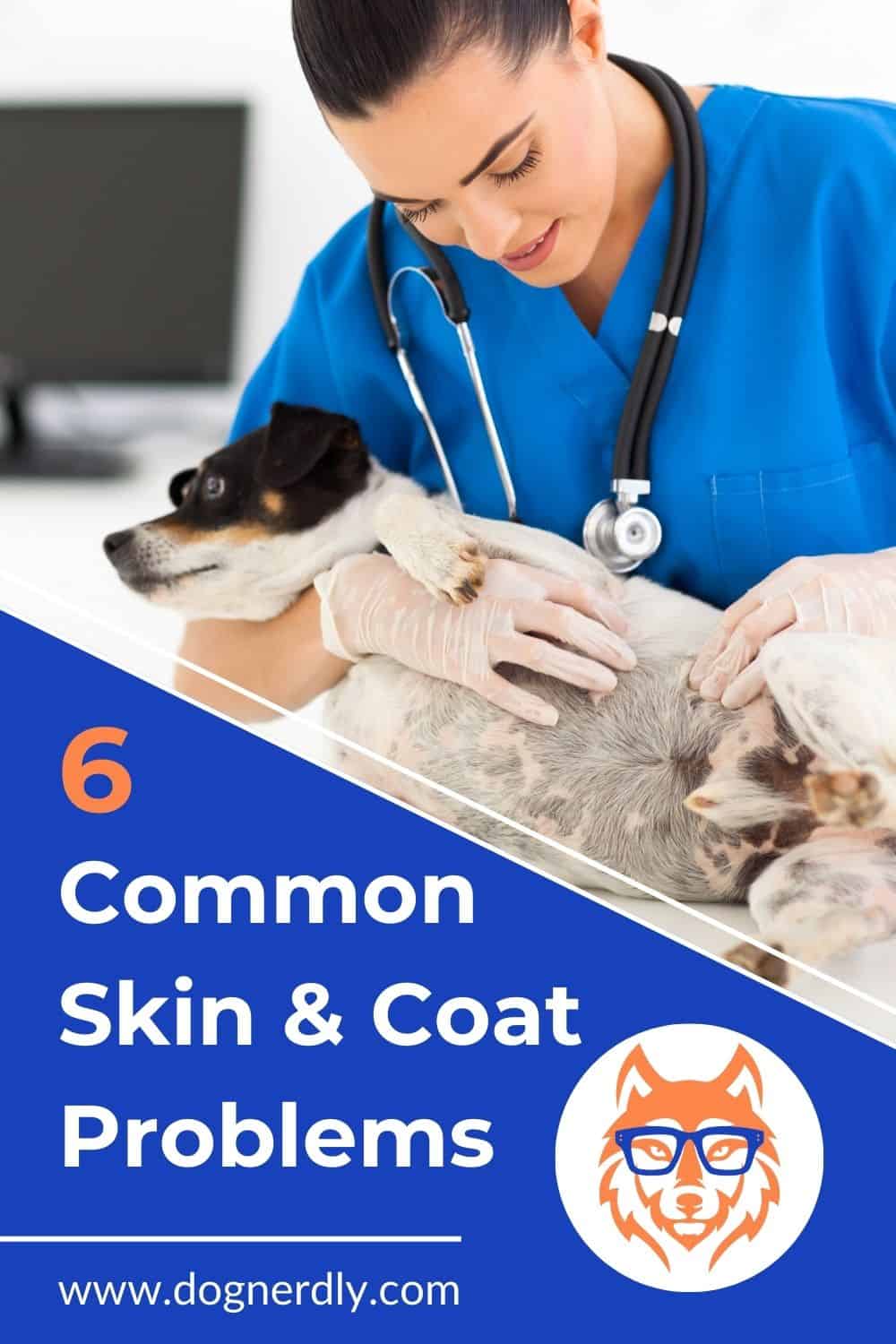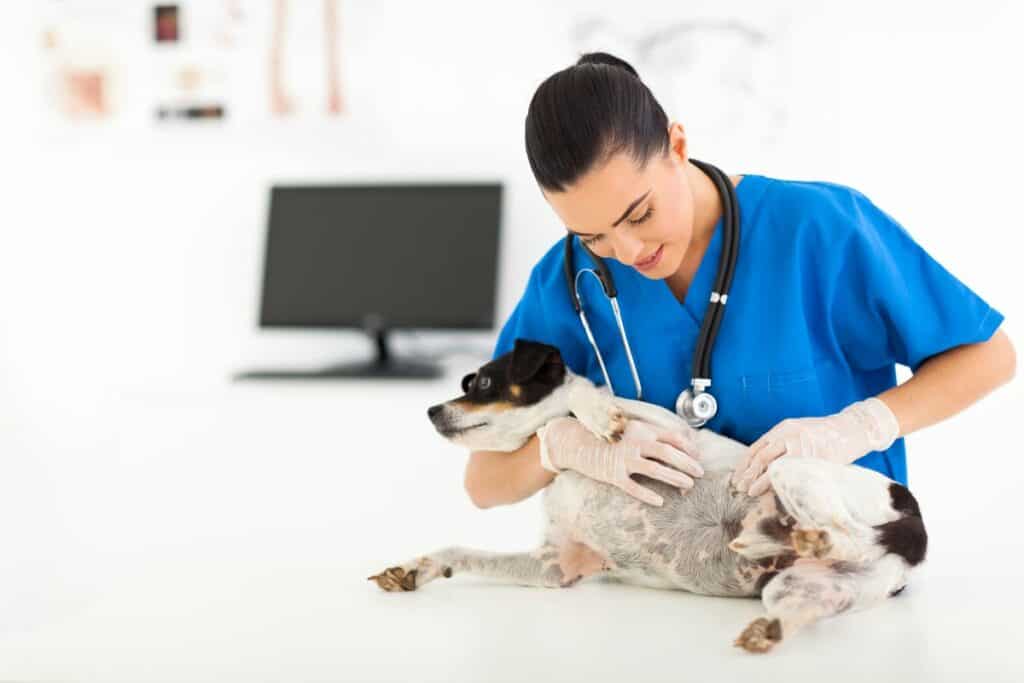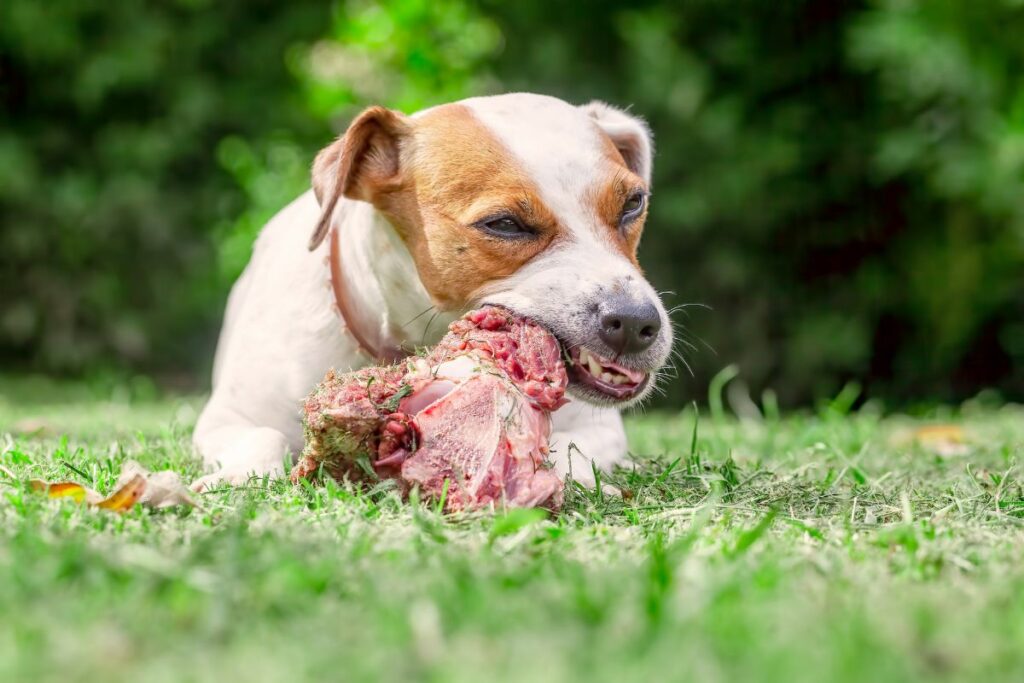Dive into the world of pet care with our guide on common skin and coat problems in dogs, and discover how to keep your furry friend shiny and happy! Learn the 6 most common skin and coat problems, how to recognize them and what to do to treat them.
Understanding Skin and Coat Health in Dogs
The skin and coat of a dog are the most telling indicators of its overall health and well-being. A shiny, lush coat and smooth skin are not just for show; they signify a healthy, well-nourished pet. Several factors can influence the condition of a dog's skin and coat, including genetics, environmental conditions, diet, and grooming habits. By understanding these influences, pet owners can better navigate the path to optimal health for their canine companions.
Common Skin and Coat Problems in Dogs: Recognition, Causes, and Treatment
Several conditions can mar the perfection of your dog's skin and coat, leaving them uncomfortable and you, worried. Allergies, whether from food, the environment, or fleas, lead the pack in common issues, manifesting through excessive scratching, red skin, or even hair loss. Parasites like fleas, ticks, and mites also contribute their share of discomfort. On the flip side, infections due to bacteria or fungi can lead to scratching, odors, and discomfort. Nutritional deficiencies round out the usual suspects, often overlooked but just as impactful.
Expanding on the section regarding common skin and coat problems in dogs, it's important to understand the variety of issues that can affect our furry friends, how to recognize them, their underlying causes, and the most effective treatments. This knowledge can empower dog owners to take swift action, ensuring their pets remain healthy and comfortable.
1. Allergies
- Recognition: Symptoms include excessive scratching, biting, or licking, along with red, inflamed skin, hives, and possibly hair loss. Allergies can also lead to ear infections.
- Causes: Can be triggered by environmental allergens (pollen, dust, mold), fleas, food, or contact with irritants like certain fabrics or cleaning products.
- Treatment: Identifying and eliminating the allergen is key. Treatments may include antihistamines, corticosteroids, special diets for food allergies, flea prevention products, and hypoallergenic shampoos. Regular bathing with medicated shampoo can help relieve symptoms.
2. Parasitic Infestations (Fleas, Ticks, Mites)
- Recognition: Signs include scratching, biting at affected areas, visible parasites on the skin, and sometimes scabs or loss of hair. Flea infestations might also leave behind tiny black dots (flea dirt).
- Causes: Direct contact with parasites or infested environments.
- Treatment: Use of topical or oral flea and tick preventatives, medicated shampoos, and environmental control measures to eliminate parasites and their larvae from the home.
3. Bacterial Infections (Pyoderma)
- Recognition: Look for pus-filled lesions, red skin, hair loss, and crusty skin. Dogs might also have an odor due to the infection.
- Causes: Often secondary to other skin conditions like allergies or injuries that break the skin, allowing bacteria to enter and multiply.
- Treatment: Antibiotics are the main course of treatment, often requiring several weeks of administration. Medicated shampoos can help alleviate symptoms and prevent recurrence.
4. Fungal Infections (Ringworm)
- Recognition: Circular, crusty bald patches on the skin that can be itchy. Not caused by a worm but by a fungus that affects the skin and hair fibers.
- Causes: Contact with the fungus through infected animals, humans, soil, or objects.
- Treatment: Antifungal medications, both topical and oral, are used to treat ringworm. Environmental decontamination is also crucial to prevent re-infection.
5. Nutritional Deficiencies
- Recognition: Dull, dry coat, excessive shedding, and flaky skin. In severe cases, dogs may also show general signs of poor health like lethargy or weight loss.
- Causes: Diets lacking in essential fatty acids, vitamins, and minerals necessary for healthy skin and coat.
- Treatment: Upgrading to a high-quality, balanced diet specific to your dog's age, breed, and health status. Supplements of Omega-3 and Omega-6 fatty acids, along with vitamins A, E, and B-complex, may be recommended.
6. Hormonal Imbalances
- Recognition: Thinning fur, particularly on the body, back of the legs, and tail. Skin may appear thicker or darker in affected areas.
- Causes: Conditions like hypothyroidism or Cushing's disease can disrupt normal hormonal balance, affecting skin and coat health.
- Treatment: Hormone therapy to address the underlying condition, combined with supportive skin care, can improve symptoms.
Preventive Measures and General Care
While treatment is specific to the condition, preventive care plays a crucial role in maintaining a dog's skin and coat health. Regular grooming, a balanced diet rich in essential nutrients, routine vet check-ups, and prompt attention to any signs of skin distress can help prevent the onset of more serious conditions.
Understanding these common skin and coat problems in dogs, recognizing their symptoms, and knowing the basics of their treatment and prevention can help ensure that dogs not only look their best but also feel their best. Always consult a veterinarian for a proper diagnosis and treatment plan tailored to your dog's specific needs.
Nutritional Foundations for Healthy Skin and Coat
The adage "you are what you eat" holds as true for our four-legged friends as it does for us. Nutrition is the cornerstone of a healthy skin and coat. Essential fatty acids, particularly Omega-3 and Omega-6, found in fish and flaxseed, play a pivotal role. These fats are crucial for maintaining the skin's moisture barrier, reducing inflammation, and ensuring that the coat stays shiny and soft. High-quality commercial dog foods designed for skin and coat health can be beneficial, but for those opting for homemade or raw food diets, consultation with a veterinarian ensures that these meals are balanced and beneficial.
Supplements for Skin and Coat Health
Supplementation can be a game-changer for dogs with skin and coat issues. Vitamins A, E, and B-complex are particularly beneficial, each playing a unique role in skin health and coat vitality. Omega fatty acid supplements can offer an additional boost, especially for those dogs not getting enough from their diet. Probiotics and antioxidants also deserve a spotlight, supporting gut health and combating oxidative stress, respectively, leading to a healthier skin and a more lustrous coat. However, the golden rule here is consultation with a vet before starting any supplements to ensure they're necessary and safe.
Practical Tips to Improve Your Dog's Skin and Coat
Improvement often lies in the daily routines. Regular grooming, including brushing and appropriate bathing, removes dead hair and skin, stimulating natural oil production for a shinier coat. Managing environmental allergens and stress can also have a profound effect on your dog's skin and coat health. And let's not forget the importance of regular vet check-ups; early detection of potential problems can prevent a lot of discomfort for your dog and distress for you.
Advanced Care Options
When basic care isn't enough, it's time to consider advanced options. Medicated shampoos, prescription diets, and allergy treatments can offer relief for more severe conditions. Recognizing when your dog's condition has escalated beyond a simple dietary deficiency or grooming issue is crucial. Professional help can then tailor treatments to your dog's specific needs, offering the best chance for recovery and comfort.
Frequently Asked Questions
If you notice persistent scratching, significant hair loss, skin odors, or changes in your dog's behavior (like increased licking), it's time to consult your vet.
Human vitamins and supplements are not formulated for dogs and can be harmful. Always use products specifically designed for pets, and consult your vet before starting any new supplement.
The frequency of baths depends on your dog's breed, skin condition, and activity level. Generally, bathing once a month is sufficient, but your vet can offer personalized advice.
Yes, natural remedies like coconut oil for topical application or adding fish oil to your dog's diet can improve skin and coat health. However, always discuss these options with your vet first.
Signs of nutritional deficiency include a dull, dry coat, skin problems, and general lethargy. If you're concerned, a veterinary nutritionist can evaluate your dog's diet and recommend adjustments.
Key Takeaway
Maintaining your dog's skin and coat health is a multifaceted endeavor that spans diet, grooming, and regular veterinary care. With the right approach, most skin and coat problems are manageable, if not entirely preventable. Remember, a shiny coat and healthy skin are not just cosmetic—they're a mirror to your dog's overall health.

Joseph Schifano is the President of The Academy of Pet Careers and Founder of DogNerdly.
With over 20 years of professional pet experience, Joseph got his start as an owner/operator of a 7-figure, all-inclusive pet care business. From there, he purchased The Academy of Pet Careers with a hopes of improving the quality of care provided by industry professionals. This role allowed Joseph to rub shoulders with some of the biggest names in the industry, and gain knowledge in every aspect of pet care.
After witnessing the popularity of social media influencers and the amount of misinformation being taught to pet parents, Joseph decided to create DogNerdly. The goal was to provide science-backed education for the average dog nerd in order to create a world where dogs and humans can live a more harmonious and empowered lifestyle.




